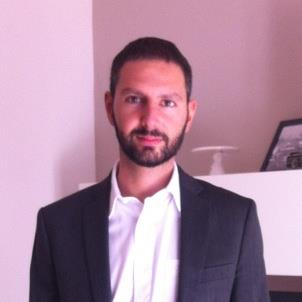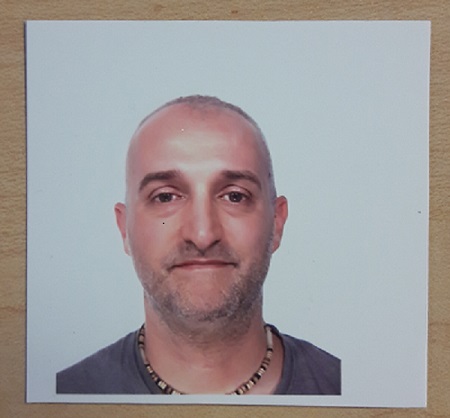Studying at the University of Verona
Here you can find information on the organisational aspects of the Programme, lecture timetables, learning activities and useful contact details for your time at the University, from enrolment to graduation.
Academic calendar
The academic calendar shows the deadlines and scheduled events that are relevant to students, teaching and technical-administrative staff of the University. Public holidays and University closures are also indicated. The academic year normally begins on 1 October each year and ends on 30 September of the following year.
Course calendar
The Academic Calendar sets out the degree programme lecture and exam timetables, as well as the relevant university closure dates..
| Period | From | To |
|---|---|---|
| Sem. 1A | Oct 1, 2012 | Nov 18, 2012 |
| Sem. 1B | Nov 19, 2012 | Jan 20, 2013 |
| Sem. IIA | Feb 25, 2013 | Apr 21, 2013 |
| Sem. IIB | Apr 22, 2013 | Jun 9, 2013 |
| Session | From | To |
|---|---|---|
| Sessione Estiva (Esami sospesi dal 16 al 19 luglio) | Jun 10, 2013 | Jul 31, 2013 |
| Sessione Autunnale | Sep 1, 2013 | Sep 30, 2013 |
| Sessione Invernale | Jan 20, 2014 | Feb 23, 2014 |
| Session | From | To |
|---|---|---|
| Sessione Estiva | Jul 16, 2013 | Jul 19, 2013 |
| Sessione Autunnale | Nov 12, 2013 | Nov 15, 2013 |
| Sessione invernale | Mar 21, 2014 | Mar 21, 2014 |
| Period | From | To |
|---|---|---|
| Festa di Ognissanti | Nov 1, 2012 | Nov 1, 2012 |
| Festa dell'Immacolata Concezione | Dec 8, 2012 | Dec 8, 2012 |
| Vacanze Natalizie | Dec 21, 2012 | Jan 6, 2013 |
| Vacanze Pasquali | Mar 29, 2013 | Apr 2, 2013 |
| Festa della Liberazione | Apr 25, 2013 | Apr 25, 2013 |
| Festa dei Lavoratori | May 1, 2013 | May 1, 2013 |
| Festa del Santo Patrono di Verona S. Zeno | May 21, 2013 | May 21, 2013 |
| Festa della Repubblica | Jun 2, 2013 | Jun 2, 2013 |
| Vacanze Estive | Aug 9, 2013 | Aug 16, 2013 |
Exam calendar
Exam dates and rounds are managed by the relevant Humanistic Studies Teaching and Student Services Unit.
To view all the exam sessions available, please use the Exam dashboard on ESSE3.
If you forgot your login details or have problems logging in, please contact the relevant IT HelpDesk, or check the login details recovery web page.
Should you have any doubts or questions, please check the Enrollment FAQs
Academic staff
 stefania.annechini@univr.it
stefania.annechini@univr.it
 chiara.benedetti@univr.it
chiara.benedetti@univr.it
 gaia.cetrano@univr.it
gaia.cetrano@univr.it
 roberto.dallachiara@univr.it
roberto.dallachiara@univr.it
Frighetto Roberta
 roberta.frighetto@univr.it
roberta.frighetto@univr.it
 annamaria.giarola@univr.it
annamaria.giarola@univr.it
 mauro.niero@univr.it
mauro.niero@univr.it
Povolo Luciana
Strano Silvana
 silvana.stranoligato@univr.it
silvana.stranoligato@univr.it
 +39 045 8028856
+39 045 8028856
 giorgio.zoccatelli@univr.it
giorgio.zoccatelli@univr.it
Study Plan
The Study Plan includes all modules, teaching and learning activities that each student will need to undertake during their time at the University.
Please select your Study Plan based on your enrollment year.
1° Year
| Modules | Credits | TAF | SSD |
|---|
Lingua straniera - Certificazione CLA livello B1 (completo)2° Year activated in the A.Y. 2013/2014
| Modules | Credits | TAF | SSD |
|---|
3° Year activated in the A.Y. 2014/2015
| Modules | Credits | TAF | SSD |
|---|
Un insegnamento a scelta tra i seguenti| Modules | Credits | TAF | SSD |
|---|
Lingua straniera - Certificazione CLA livello B1 (completo)| Modules | Credits | TAF | SSD |
|---|
| Modules | Credits | TAF | SSD |
|---|
Un insegnamento a scelta tra i seguentiLegend | Type of training activity (TTA)
TAF (Type of Educational Activity) All courses and activities are classified into different types of educational activities, indicated by a letter.
Pedagogy of adult life (2014/2015)
Teaching code
4S02347
Teacher
Coordinator
Credits
6
Language
Italian
Scientific Disciplinary Sector (SSD)
M-PED/01 - PEDAGOGY, THEORIES OF EDUCATION AND SOCIAL EDUCATION
Period
Semestrino IA dal Sep 29, 2014 al Nov 8, 2014.
Learning outcomes
Educational aims
The course general formative object aims to make the social helper understand the importance of a professional pedagogic formation, particularly related to adult life and its existential dynamics.
The centrality of adult life not only comes from the difficult situations and troubles which characterize adult people, but it is also due to the fact that the social helper, working with children (Italian or foreigner) or with elderly people, is always in contact with adults – in the role of parents or children.
- The first specific formative object is one of cognitive type: at the end of the course the student will be able to comprehend the pedagogic dimension within the social work.
- In the second specific formative object, the student is required to “know”: the meaning of being adult, the periods of adult life and their evolution during the centuries, with particular reference to the problem of “life specific key passages” and of their critic implications: at the end of the course that knowledge will let the student easily understand why there are adults who live in difficult situations.
- The third formative object is “operative”: at the end of the course the student will be able to plan new ways of dialogue with adults, following methodologies that are suitable to their situations.
- The forth object is one of formative type: at the end of the course the student will have developed the knowledge referring to the interior dimension of adult life, being aware it can be a propitious site where one can activate processes of self-care and of changing.
Program
Contents
The course will deal with the following topics:
- the pedagogic dimension of the social work;
- Adult life as a problem;
- Who the adults are: theories and existential analysis;
- Experiences of human frailty, suffering and discomfort lived by adults;
- Becoming adult: an ever identical and different path;
- Adult life and maturity: experience of maturation in life;
- Looking for identity: the part of interior life;
- Educational plans with adults having problems.
Examination Methods
Texts for exam
Mandatory for everybody:
- D. Loro, Educazione e pedagogia della vita adulta. Lecture notes 2014-2015. The lecture notes will be available at the end of the course by the cartoleria Ateneo, Lungadige Porta Vittoria, 37 . www.ateneovr.it ).
- E. Borgna, La fragilità che è in noi, Torino, ed. Einaudi, 2014.
- S. Chialà, Parole in cammino. Testi e appunti sulle dimensioni del viaggiare, Magnano (Biella), ed. Qiqajon, 2006, seconda ristampa 2011.
Teaching methods
Lessons will be frontal in the main, with the possibility to intervene with questions and short debates related to the themes of the day.
Exam
The exam consists of a three-hour written text. It consists of 6 open questions, of different types: : descriptive (to show the knowledge of the contents), argumentative (to show the capacity of reflection and associating concepts),applicable (to show the ability of concrete and active thinking on the theoretical contents).
The capacity of efficient communication will be also evaluated by the quality of the written task, which must be correct both grammatically and graphically.
Each year the programme of the course is updated in its fundamental contents, compared to the earlier years, so, it is scientifically and didactically correct that students enrolled in previous years prepare their exams on the programme of the current academic year, except for those who previously communicate to the teacher their serious reasons for not doing so.
Type D and Type F activities
Modules not yet included
Career prospects
Module/Programme news
News for students
There you will find information, resources and services useful during your time at the University (Student’s exam record, your study plan on ESSE3, Distance Learning courses, university email account, office forms, administrative procedures, etc.). You can log into MyUnivr with your GIA login details: only in this way will you be able to receive notification of all the notices from your teachers and your secretariat via email and soon also via the Univr app.
Student mentoring
Linguistic training CLA
Gestione carriere
Practical information for students
Documents
| Title | Info File |
|---|---|
|
|
pdf, it, 325 KB, 02/05/23 |
|
|
pdf, it, 212 KB, 02/05/23 |
|
|
pdf, it, 131 KB, 02/05/23 |
Graduation
Documents
| Title | Info File |
|---|---|
|
|
pdf, it, 99 KB, 13/10/23 |
|
|
pdf, it, 101 KB, 10/04/24 |
List of theses and work experience proposals
| theses proposals | Research area |
|---|---|
| Proposta tesi | Various topics |
Assistente Sociale
Comune e Università di Verona collaborano per la formazione alla professione di assistente sociale.
Professione Assistente Sociale
Pagina aggiornata il 18/1/2022
Stage e Tirocini
Le attività̀ di tirocinio degli studenti si svolgono presso strutture esterne, convenzionate con l’Università degli Studi di Verona ai sensi delle vigenti disposizioni in materia. Nelle strutture esterne gli studenti svolgono le attività di tirocinio sotto la responsabilità di un assistente sociale (Tutor-supervisore), appartenente a dette strutture, coordinato a sua volta dal responsabile del tirocinio presso il Corso di Studio.
In assenza di un assistente sociale, operante nella struttura esterna, il Collegio didattico, per quanto di competenza, decide, su proposta dei responsabili del tirocinio, in ordine alle condizioni per l’effettuazione o la prosecuzione delle attività di tirocinio degli studenti interessati. Le attività di tirocinio sono obbligatorie per almeno 450 ore.
Il Collegio didattico, in deroga alle disposizioni del presente articolo, può consentire a studenti che si trovino in particolari condizioni, in specie se disabili, lavoratori o impegnati in organismi collegiali dell’Università degli Studi di Verona, di non ottemperare in parte all’obbligo di frequenza alle attività di tirocinio, predisponendo forme alternative di tirocinio, anche tramite supporti telematici e multimediali interattivi.
I responsabili delle attività di tirocinio presso il Corso di Studio, anche avvalendosi di appositi collaboratori o tutori esterni, accertano la presenza degli studenti presso le rispettive strutture. A tal fine utilizzano un apposito libretto di frequenza per ciascuno studente.
Al termine dell’attività di tirocinio, lo studente deve presentare una relazione scritta al responsabile di tale attività presso il Corso di Studio. Lo studente elabora la relazione scritta, controfirmata dal Tutor-supervisore. La relazione finale viene valutata dal responsabile del tirocinio presso il Corso di Studio e deve tenere conto degli obiettivi prefissati dal Collegio didattico.
La valutazione viene attribuita al tirocinio nel seguente modo: sufficiente = 1; buono = 2; ottimo = 3; eccellente = 4 e verrà aggiunta alla media dei voti del curriculum al momento della discussione della tesi.
Gli Uffici della Direzione Didattica e Servizi agli Studenti predispongono la documentazione necessaria allo svolgimento delle attività̀ di tirocinio, comprese attestazioni e certificazioni.
Nel caso in cui lo studente partecipi a programmi di mobilità internazionale, le attività̀ di tirocinio vengono regolamentate come segue:
A – Lo studente svolge il Tirocinio presso la sede estera.
Se lo studente svolge il Tirocinio all’estero si ritengono assolti gli obbligo relativi al Laboratorio se:
- - lo studente aggiorna il proprio docente/tutor con brevi relazioni mensili da inviare mezzo mail, sull’andamento del lavoro svolto presso la sede estera;
- - produce una relazione finale completa del tirocinio svolto.
La valutazione finale del laboratorio di guida al tirocinio sarà̀ effettuata da parte del tutor del laboratorio sulla base della relazione dello studente tenendo conto della eventuale valutazione da parte del supervisore estero.
B – Lo studente non svolge il Tirocinio presso la sede estera.
Se lo studente non svolge il Tirocinio nella sede estera e lo deve fare al rientro:
lo studente effettua uno/due incontri individuali iniziali con il docente/tutor in cui predisporre quanto necessita per l’avvio del tirocinio e nei quali verranno forniti materiali, griglie ed eventuali testi di riferimento;
invia brevi relazioni mensili sull’andamento del tirocinio che sarà svolto in Italia al di fuori del periodo in cui si tiene il laboratorio di guida al tirocinio;
produce la relazione finale completa del tirocinio svolto”.
- Tutte le informazioni in merito agli stage per futuri studenti sono disponibili alla pagina Stage e tirocini.
- Tutte le informazioni in merito agli stage per studenti iscritti sono pubblicate in MyUnivr - come fare per - stage e tirocini.
- Tutte le informazioni in merito agli stage per le aziende sono disponili alla pagina Stage e tirocini per azienze.




















